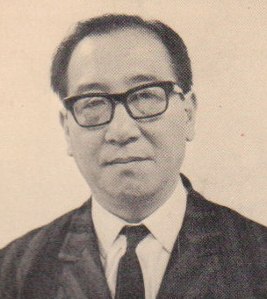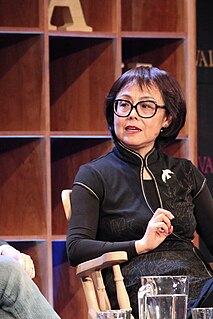 W
WChen Qiushi is a Chinese lawyer, activist, and citizen journalist who covered the 2019–20 Hong Kong protests and the COVID-19 pandemic which included criticism of the government response. He was last heard from on 6 February 2020; as of August 2020, his whereabouts were still unknown. The Chinese government reportedly informed Chen's family and friends that he has been detained for the purpose of COVID-19 quarantine. Critics, including media freedom groups, have expressed skepticism about government motives, and have unsuccessfully called on the government to allow outside contact with Chen.
 W
WFang Bin is a Chinese businessman, citizen journalist and whistleblower who used YouTube and WeChat to broadcast images of Wuhan during the COVID-19 pandemic. He was arrested several times between February 1 and 9, 2020. He has been missing since his arrest on February 9, 2020.
 W
WHu Zhengzhi or Hu Lin was a Chinese newspaper publisher and political figure in Republican China. He is best known as the chief editor of the Ta Kung Pao from 1916 to 1923, then as its publisher until his death in 1949. He stood for an independent press and raised professional standards in journalism, but supported the Nationalist government's resistance to Japanese aggression in China, and tried to bridge the gap between the Chinese Communist and Nationalist parties after the war.
 W
WWeijia Jiang is a Chinese-born television journalist and reporter. Since July 2018, she has served as White House Correspondent for CBS News. Jiang's tense interactions with President Donald Trump at press briefings have received global attention and coverage.
 W
WKwee Hing Tjiat was a Chinese-Malay journalist and a leading peranakan Chinese intellectual of the late colonial era.
 W
WJean Pasqualini was a French and Chinese journalist who wrote a memoir of his experiences as a political prisoner in the Laogai labor camp system. Born in Beijing, Jean Pasqualini was the son of a Chinese mother and a Corsican French father. His Chinese name is rendered as Bao Ruowang, with "Bao" representing the first syllable in Pasqualini and "Ruowang" being a phonetic rendering of Jean.
 W
WXiao Qiang is the Director and Research Scientist of the Counter-Power Lab, an interdisciplinary faculty-student research group focusing on digital rights and internet freedom, based in the School of Information, University of California, Berkeley. Xiao is an adjunct professor at the School of Information and the Graduate School of Journalism, at the University of California, Berkeley. He is also the Founder and Editor-in-Chief of China Digital Times, a bilingual China news website.
 W
WXuē Xīnrán is a British-Chinese journalist, author, speaker, and advocate for women's issues. She was a popular radio personality in China with a call-in program named "Words on the Night Breeze" from 1989 to 1997. The program focused on women's issues and life stories. She was well known for travelling extensively in China to interview women for her work. In 1997, she moved to London and began writing stories of the women she met along her journeys. Her first book, The Good Women of China, was published in 2002, becoming an international bestseller. She frequently contributes to The Guardian and the BBC.
 W
WGeling Yan is a prominent Chinese-American writer, author of several novels, short stories and screenplays. Much of her work has been adapted for film. She is currently represented by the Hong Kong-based Peony Literary Agency.
 W
WZeng Qi was a politician in Republican China. He was the founder and chairman of the Chinese Youth Party, a third party behind the Nationalist Party and the Communist Party at the time.